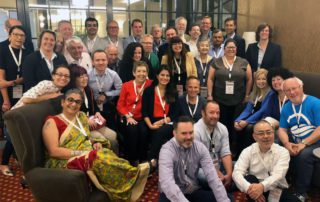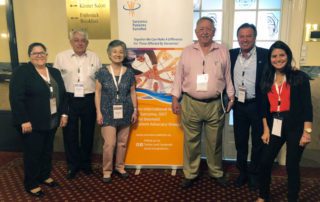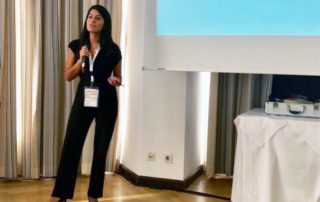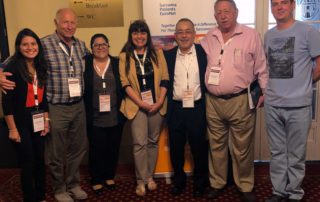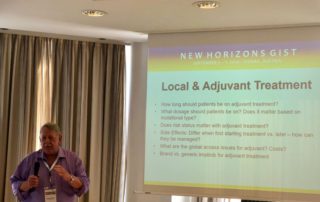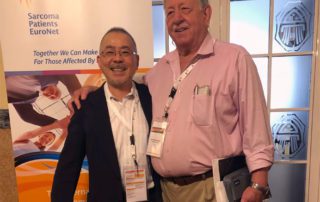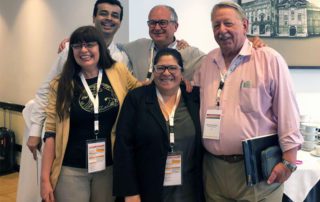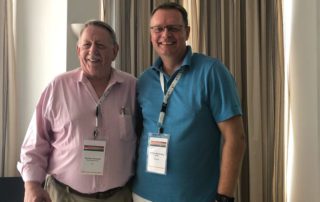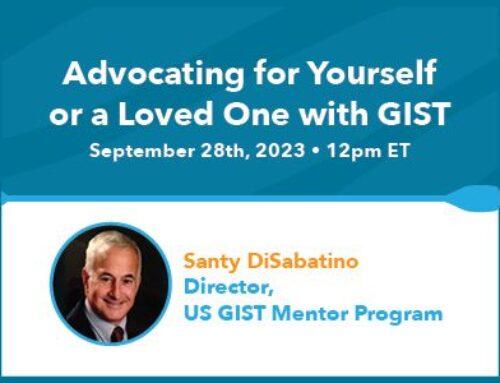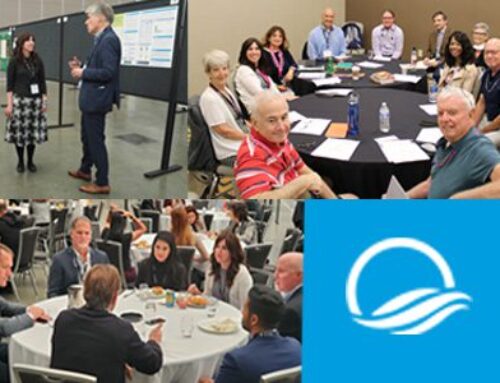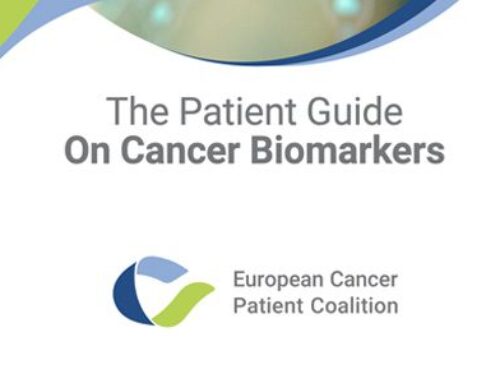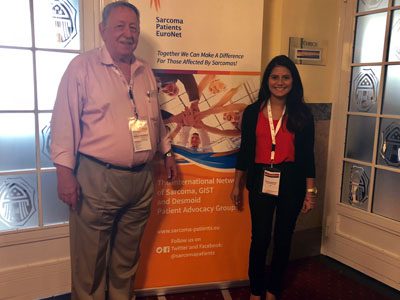 On September 6th, Executive Director, Norman Scherzer and I attended the New Horizons GIST meeting in Vienna, Austria. Forty-three delegates, including GIST experts, advocacy groups, and patients/caregivers from 18 countries, gathered to share valuable medical information and scientific data regarding treatments. The main goal of this conference is to unify and solidify collaborations among the GIST community, with the objective of discovering ways of increasing patient survival worldwide. The Life Raft Group presented the importance of Real World Evidence (RWE) and Real World Data (RWD) at the conference.
On September 6th, Executive Director, Norman Scherzer and I attended the New Horizons GIST meeting in Vienna, Austria. Forty-three delegates, including GIST experts, advocacy groups, and patients/caregivers from 18 countries, gathered to share valuable medical information and scientific data regarding treatments. The main goal of this conference is to unify and solidify collaborations among the GIST community, with the objective of discovering ways of increasing patient survival worldwide. The Life Raft Group presented the importance of Real World Evidence (RWE) and Real World Data (RWD) at the conference.
RWE utilizes observational data to determine the perceived benefit of treatments to increase survival and improve quality of life for cancer patients. The rich diversity of data collected from patients will yield more precise, better targeted, and therefore, more effective health care. RWD and the resultant RWE is being utilized to enhance and complement traditional research by providing a broader picture of the patient’s GIST journey. The power of data was truly shown during this meeting, but the real question was “How can we transform that data into something more powerful?” The answer is simple – collaboration. The importance of collaboration in the GIST community is crucial due to the rarity of this cancer. Unifying and collaborating with the scientific community, advocacy groups, and patients/caregivers will lead to a faster cure.
More subtypes of GIST are being discovered (such as SDH-Deficient GIST). Currently there is a lack of effective treatment for such subtypes. It is important to collaborate in order to strengthen and advance research for effective treatments for patients from subtypes that have been unresponsive to the current standard treatments. The Life Raft Group and a roster of leading GIST experts have created the Pediatric & SDH-Deficient GIST Consortium. The objective of the Consortium is to identify at least one effective treatment within three years through initiation of new clinical trials for the Pediatric and SDH-Deficient GIST population.
Adjuvant treatment and metastatic disease were among other topics discussed, as well as new treatments for GIST. For years only three lines of drug treatments were known to be effective. However, with the advance of scientific investigations and clinical trials, more options are available for patients that failed the three standard treatment lines. Leading GIST experts who attended this conference were able to show many case studies of adults with advanced GIST who took a clinical trial drug that showed very promising outcomes. Such findings fill healthcare practitioners, patients, and caregivers with hope and optimism for the future of GIST treatments.
Participants also had the amazing opportunity to share information regarding the role of Psycho-Oncology in GIST, for patients and caregivers. Different ways of coping and helping to recognize the unique psychological needs of cancer patients were discussed, as well as the importance of safeguarding the psychological health of caregivers.
The New Horizons GIST Meeting was a great conference, with many things learned and shared by GIST experts and advocacy groups. Delegates from all over the world were present with the primary objective of collaboration. This is proof of the international dedication to patient advocacy and research.
New Horizons 2018 Gallery
Click on image to view larger

